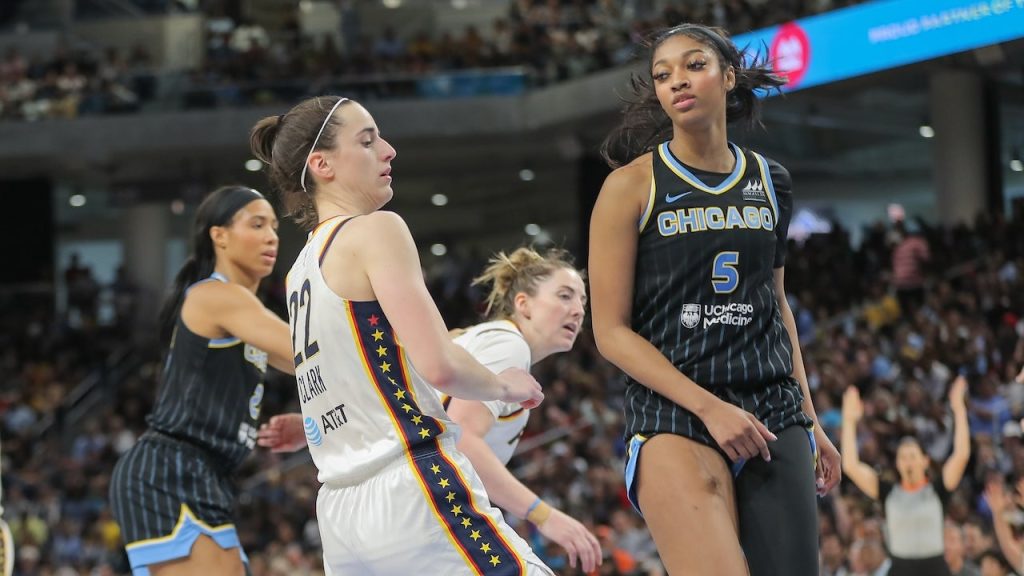In her podcast debut, WNBA Rookie of the Year contender Angel Reese discussed her personal history with fans of her rival, Caitlin Clark. Reese reflected on the intense interactions with Clark’s followers that began after she pointed to her ring finger in Clark’s face during LSU’s NCAA title win in 2023. She mentioned facing death threats, harassment, and even AI-generated images sent to her family members by fans. Reese expressed frustration with the disrespectful behavior and alleged racism from some of Clark’s supporters.
The rivalry between Reese and Clark has led to controversial moments throughout their college and pro careers. Barstool founder Dave Portnoy posted a video of the 2023 NCAA title game incident, calling Reese a “classless piece of s—,” igniting further online attacks against her. Reese’s Chicago Sky teammates have also faced scrutiny for hard fouls on Clark, with Diamond DeShields being targeted with hateful comments about a tumor she had removed in 2020. Chennedy Carter was criticized for a foul on Clark that led to her being knocked to the floor, but she responded defiantly on social media.
Despite the backlash from Clark’s fans and online trolls, Reese has remained resilient and has not shied away from speaking out about the treatment she receives. She broke down in tears during a press conference after losing to Clark in this year’s NCAA Tournament, revealing the extent of the threats and harassment she has endured since winning the national championship. Reese emphasized the toll that the negative attention has taken on her mental health and happiness, but she continues to stand strong for her teammates.
The toxicity and harassment directed towards Reese by some of Clark’s fans highlight the darker side of sports rivalries and the impact it can have on athletes’ mental well-being. The excessive online attacks, death threats, and objectification of Reese through AI-generated images are unacceptable forms of behavior that should not be tolerated. The rise of social media has made it easier for fans to target and harass athletes, creating a need for stronger measures to protect players from online abuse.
Reese’s willingness to speak out about her experiences with harassment sheds light on the struggles that athletes, especially women, face in dealing with online abuse. The support and solidarity shown towards Reese by her teammates and others in the sports community are crucial in combating toxic fan behavior and standing up against online harassment. It is essential for sports organizations, social media platforms, and fans to work together to create a safer and more respectful environment for athletes, ensuring that they can compete without fear of threats or harassment.
Moving forward, it is important for the WNBA and other sports leagues to address the issue of online harassment and implement policies to protect athletes from abuse. By raising awareness about the impact of toxic fan behavior and empowering athletes to speak out against online harassment, steps can be taken to create a more positive and supportive sports culture for everyone involved. The resilience and courage shown by Angel Reese in confronting her online attackers set an example for others to stand up against hate and promote a more inclusive and respectful sports community.


